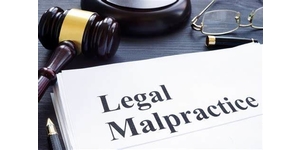
The most fundamental obligation that a lawyer owes to a client is the duty to handle the client’s matter competently. See La. Rules of Prof’l Conduct, r. 1.1. Incompetent lawyering can lead not only to discipline for violating Rule 1.1, but also to delictual liability for professional malpractice. There is, however, a difference between mere malpractice and sanctionable misconduct. As explained by the Louisiana Supreme Court:
The question of when ordinary legal malpractice becomes an ethical violation is somewhat unclear. Strictly speaking, virtually any time an attorney allows his client’s case to prescribe or to become abandoned, it could be said the attorney lacks competence in violation of Rule 1.1 and failed to act with diligence in violation of Rule 1.3. However, as a practical matter, disciplinary sanctions are not always appropriate in every instance in which an attorney commits minor violations of the Rules of Professional Conduct. When significant discipline has been imposed in this context, the cases typically involve situations in which the malpractice is combined with additional misconduct, such as where the attorney acts with deceit or misrepresents facts in an effort to conceal the malpractice from the client.
See In re Brown, 967 So. 2d 482, 486 (La. 2007).
Legal Malpractice or Sanctionable Misconduct?
Under Louisiana Supreme Court precedent, discipline is generally not appropriate in a case of ordinary legal malpractice. See Brown, 967 at 486. The Louisiana Supreme Court has, however, consistently disciplined lawyers when the lawyer acts with deceit. For example, the Louisiana Supreme Court recently suspended a when the respondent notarized a will that was executed by the testator outside of the presence of the witnesses. See In re Hunter, No. 2022-B-00899 (La. June 28, 2022) (J. McCallum dissenting, in part, based on belief that the issues of discipline and malpractice have been inappropriately conflated). The court has also disciplined lawyers who lie to or intentionally mislead their clients regarding the act of malpractice. See In re Dixon, 996 So. 2d 1029 (La. 2008) (suspending lawyer for one year and one day when lawyer neglected the service of a client’s petition, altered the original petition after it had been filed with the trial court, and intentionally made false statements to the Office of Disciplinary Counsel during its investigation).
Conclusion
Even the best lawyers among us may err. Not all errors need to be disclosed. Rather, a lawyer need only disclose a “material” error. An error is “material” only if a “disinterested lawyer” would conclude that the error is “reasonably likely to harm or prejudice a client,” or if a reasonable client would “consider terminating the representation even in the absence of harm or prejudice.” See ABA Formal Op. No. 481 (Apr. 17, 2018) at 1-2. Model Rule 1.4(a) requires a lawyer to communicate with the client in a reasonable matter. And this communication obligation requires a lawyer to disclose to the lawyer’s client any material error. Absent an element of deceit in the malpractice or failure to communicate the fact of malpractice to the client, ordinary legal malpractice should not rise to the level of sanctionable misconduct.
